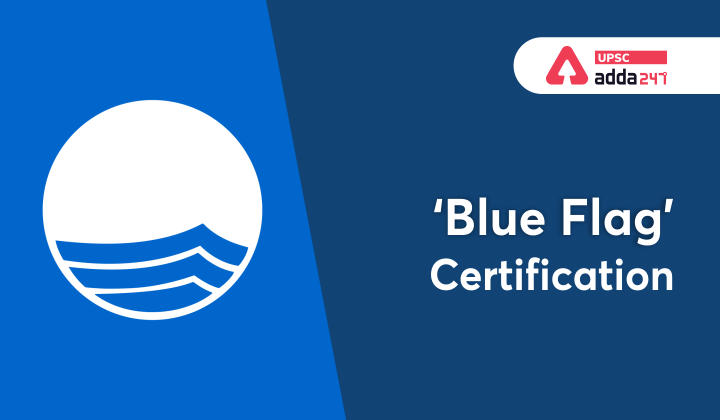Table of Contents
Blue Flag Certification- Relevance for UPSC Exam
- GS Paper 3: Environment- Conservation, environmental pollution and degradation;
Get free video for UPSC CSE preparation and make your dream of becoming an IAS/IPS/IRS a reality
Blue Flag Certification- Context
- Recently, two more beaches from India were awarded the ‘Blue Flag Certification’ tag by Foundation for Environment Education (FEE), Denmark.
The End of the Ease of Doing Business Rankings
Blue Flag Certification in India
- Kovalam beach in Tamil Nadu and Eden beach in Puducherry are the two new beaches to receive the Blue Flag International
- Now a total of 10 beaches from India have received the ‘Blue Flag Certification’ tag.
- 2018: Chandrabhaga beach on the Konark coast of Odisha became the 1st Indian as well as 1st Asian beach to get Blue Flag Certification.
- Other Eight Blue Flag Certified Beaches in India:
-
- Shivarajpur in Gujarat,
- Ghoghla in Diu,
- Kasaragod in Kerala
- Kappad in Kerala,
- Padubidri in Karnataka,
- Rushikonda in Andhra Pradesh,
- Golden in Odisha, and
- Radhanagar in Andaman and Nicobar
National Financial Reporting Authority- Background, Formation and Key Functions
Blue Flag Certification- key points
- Background:
- 1985: Blue flag program started in France.
- 1987: It was presented to FEE and became the European Blue Flag.
- 2001: South Africa became the first country outside of Europe to join the program and this led to its changed name- International Blue Flag.
- About: Blue Flag Certification is an internationally recognized eco-label awarded by a non-profit organization called the Foundation for Environment Education (FEE), Denmark.
- The Blue Flag recognition is awarded by a jury comprising members from the IUCN, UNWTO, UNEP, and UNESCO after considering 33 parameters.
- Parameters used: The certification is based on 33 parameters which are then divided into 4 major categories. They are-
-
- Environmental education and information
- Bathing water quality
- Environmental management
- Conservation and safety services on the beaches
- Global scenario: There are more than 4000 blue flag beaches worldwide with Spain leading the number of beaches per country with this certification.
- Significance:
- Promote clean and sustainable tourism: blue flag beaches should provide clean and hygienic bathing water, along with basic infrastructure for tourists.
- It also advocates against inequality, disparity, unemployment, depletion of natural resources, health and environmental threats, pollution as well as general environmental degradation.
WHO Global Air Quality Guidelines 2021-Impact on health and key changes




 TSPSC Group 1 Question Paper 2024, Downl...
TSPSC Group 1 Question Paper 2024, Downl...
 TSPSC Group 1 Answer key 2024 Out, Downl...
TSPSC Group 1 Answer key 2024 Out, Downl...
 UPSC Prelims 2024 Question Paper, Downlo...
UPSC Prelims 2024 Question Paper, Downlo...




